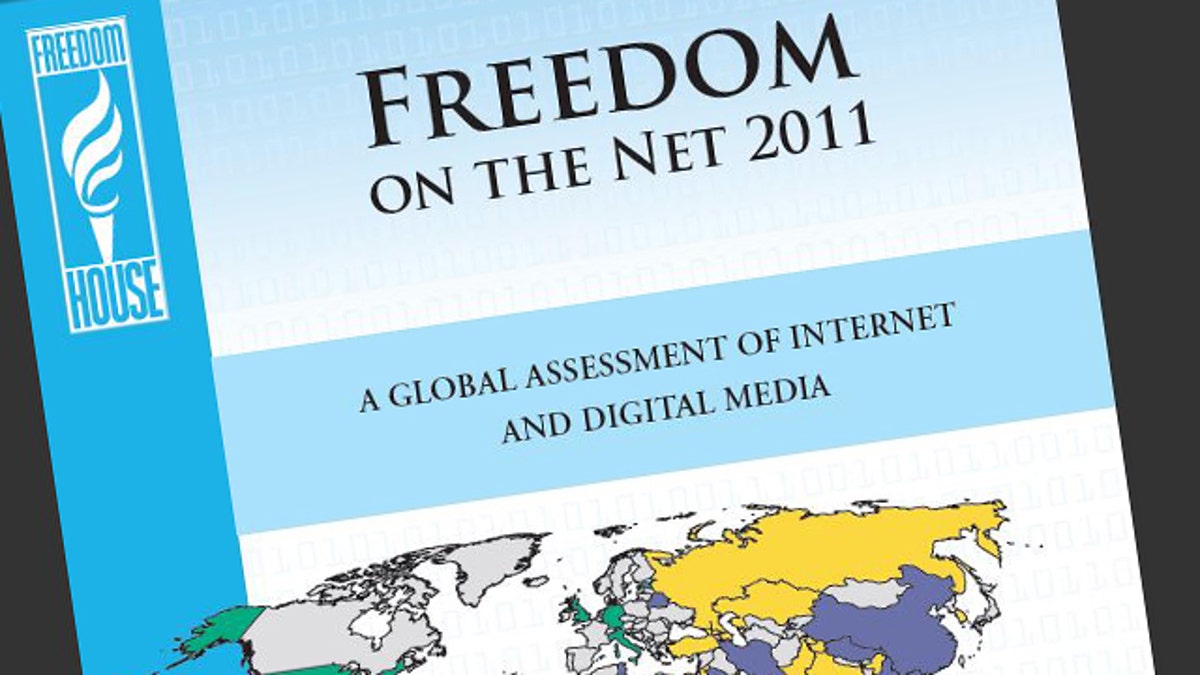
The cover of a 2011 report ranking countries by how freely their citizens can access the Internet. (Freedom House)
Iran is the worst country in the world -- at least when it comes to web freedom, claims a new report.
Among the reports eye-opening findings: The number of Internet users has doubled over the past five years, and governments worldwide are trying to find ways to control the heightened online activity -- sometimes relying on extreme measures to send a message.
"Freedom On the Net 2011: A Global Assessment of Internet and Digital Media" evaluates a country based on factors that potentially violate a users’ rights, such as limitations on content and barriers to access. According to the report released Tuesday by watchdog group Freedom House, an alarming 11 out of 37 countries received a ranking of “Not Free,” while only eight were granted “Free.”
The remainders were given “Partly Free.” Estonia reportedly had the greatest degree of Internet freedom, while the United States ranked as the second most free. Iran, however received the lowest score out of all countries, dropping 13 points from its 2009 score.
The study found that since the 2009 presidential election, Iranian authorities have taken strong steps to infringe upon Internet freedom. Freedom House reported findings that included authorities deliberately slowing Internet speeds at “critical times” and hacking popular opposition websites.
Iran reportedly has strengthened a centralized filtering system that can block a website across the country within just hours of finding it. It also acknowledged that an increasing number of bloggers in Iran have been threatened, arrested, tortured or kept in solitary confinement. Surprisingly the report found that in 23 of the countries -- some of which are supposedly democratic -- at least one blogger or Net user has been detained for posts.
While China may be the most infamous government to use cyberattacks to disrupt online activists from networking, the study found that in total at least 12 governments of the 37 participated in a similar practice.
In 22 of the countries online users have been jailed for posting something online, and it’s getting easier for some of these governments to make arrests thanks to developing programs that enable a government to track down users looking up specific keywords.
Social networking websites like Facebook, YouTube and Flickr were among the top websites to be blocked by these governments, while some find ways to disrupt e-mail services provided by Google in an effort to frustrate users and push them towards more easily monitored programs.
The bottom ten, in order from bad to worst, were: Bahrain, Belarus, Ethiopia, Saudi Arabia, Vietnam, Tunisia, China, Cuba, Burma and Iran.








































